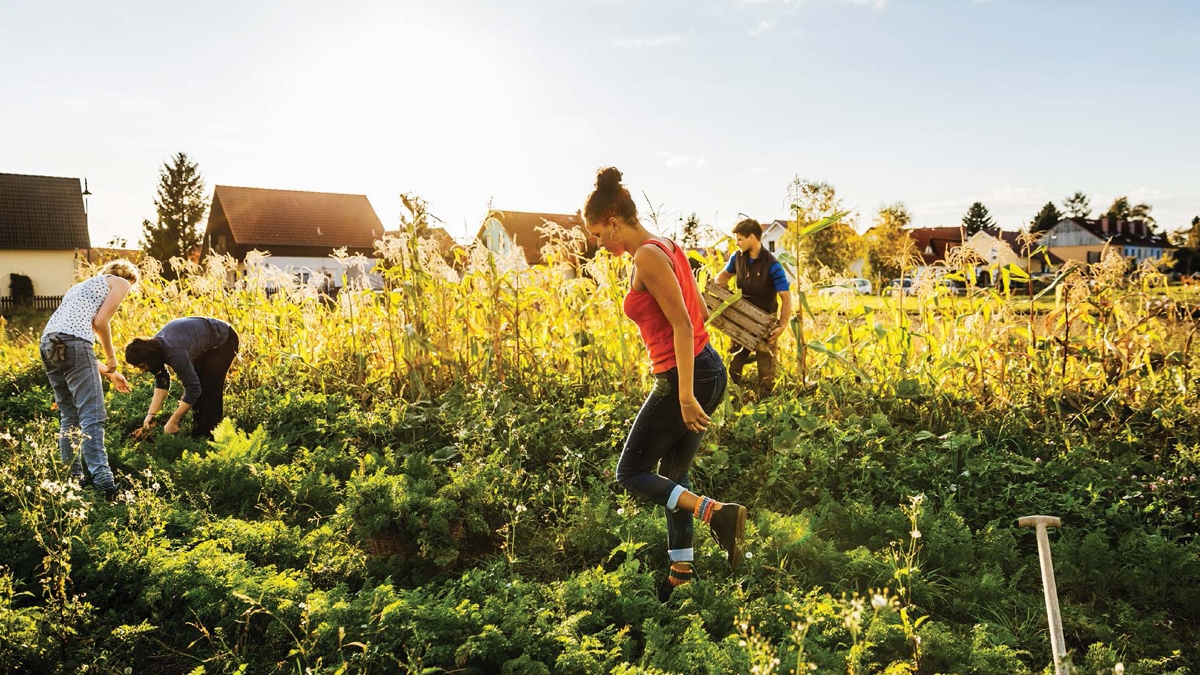
Published in 2021 by The Rosen Publishing Group, Inc.
29 East 21st Street, New York, NY 10010
Copyright 2021 by The Rosen Publishing Group, Inc.
First Edition
Portions of this work were originally authored by Sarah Machajewski and published as Cool Careers Without College for People Who Love Nature. All new material in this edition authored by Siyavush Saidian.
All rights reserved. No part of this book may be reproduced in any form without permission in writing from the publisher, except by a reviewer.
Library of Congress Cataloging-in-Publication Data
Names: Saidian, Siyavush.
Title: Careers for people who love the great outdoors / Siyavush Saidian.
Description: New York: Rosen Publishing, 2021. | Series: Cool careers
without college | Includes bibliographical references and index.
Identifiers: ISBN 9781499468823 (pbk.) | ISBN 9781499468830 (library bound)
Subjects: LCSH: Outdoor life--Vocational guidance--Juvenile literature.
| Agriculture--Vocational guidance--Juvenile literature.
Classification: LCC HF5381.2 S24 2021 | DDC 331.702--dc23
Some of the images in this book illustrate individuals who are models. The depictions do not imply actual situations or events.
Manufactured in the United States of America

CONTENTS
INTRODUCTION
I n the hustle and bustle of the 21st-century world, many people associate the word career with a dull, lifeless office job that one works just to pay the bills. However, all careers should be about passion, excitement, and personal satisfactionwhile also getting the bills paid, of course. So if youre a big fan of working with your hands, feeling the sun on your face, and enjoying the great outdoors, why would you pursue a job in an office setting? Heres the good news: you dont have to.
Imagine that you could get paid to sail the seas in search of fishing spots, guide people through national parks, or get your hands in the dirt and garden all day long. If that sounds appealing, youll be happy to learn that there are countless opportunities in these fieldsand othersfor people who love nature. Unlike many career paths, a lot of these jobs are open to those who dont have a college degree, and sometimes they require little to no advanced training. In a lot of outdoors-related industries, hands-on experience and a strong work ethic are more important than a degree.
Just as in every field, youll have to work your way up at a company or organization that offers nature-based work. You may start by working early or late, getting your hands dirty (often literally), and gaining valuable experience. However, if you can stick it out through the early phases, theres a lot of room to advance and start working as a manager, organizer, or administratormost of the time accompanied by a nice pay raise.
If youd rather stretch your legs than sit at a desk day in and day out, dont worry: there are workplaces for people like you all across the world. Whether youre growing Christmas trees, leading whale-watching expeditions, or protecting wildlands, there are plenty of cool outdoor careers out there.
CHAPTER 1
LITTLE GREEN IN THE BIG CITY
I f you didnt grow up in a city, youre probably used to seeing and exploring the natural world. Large fields of green grass, towering trees of many varieties, and every color of wildflower imaginable are spread across the worlds less metropolitan areas. But if you grew up in or near a city, youre probably not used to being able to appreciate the beauty of nature on a daily basis. In some urban areas, the only green to be seen is sprouting up from cracks in the cement of an abandoned lotcertainly not a pleasant sight.

Urban gardeners add a splash of the natural world to cities all across the United States and Canada.
Enter the urban gardener, a person whose job it is to transform the concrete jungle. One of the most common methods of bringing nature to big cities is by starting and maintaining a community garden. At these locations, urban gardeners teach and encourage people from the local area to help them plant, cultivate, and harvest all kinds of plants, from pretty flowers to nutritious vegetables. Growing food in some urban areas is a big deal, as members of the community may not have easy access to fresh produce without the help of an urban gardener. Its even possible for a community garden or another urban gardening project to expand into a small-scale farm, located right in the middle of the city and serving the needs of people well beyond the neighborhood.
URBAN GARDEN, URBAN RESPONSIBILITIES
An urban gardener works inor helps operate and maintaina community garden or urban farm. The need for talented, passionate urban gardeners is higher than ever, as the number of community gardens across the world is on the rise. According to the Trust for Public Land, there are nearly 30,000 community gardens across the United States 100 largest cities.
The people involved in community gardening have the chance to combine a love of nature and knowledge of gardening and horticulture with a passion for helping others. Urban gardeners must be willing to pitch in and do some tough labor. Typical daily or weekly tasks include clearing and cleaning up vacant lots; maintaining equipment sheds, benches, and picnic tables; composting leaves and leftover produce; and, of course, weeding, planting, and harvesting in the gardens. If you learn the ropes by helping out with these basic tasks, you may be able to work your way up to assist with other activities in the garden.
STRIKING SUCCESS IN URBAN FARMING
Urban farming is spreading fast all across the United States and around the globe. Here are just a few success stories:
In London, England, a 2009 program supported by then-mayor Boris Johnson saw nearly 100,000 London residents growing crops in more than 2,000 community gardens across the city.
In 2010, 67 New York City urban gardens and farms participated in a study supported by the grassroots organization Farming Concrete. They grew 87,700 pounds (39,780 kg) of fresh producevalued at nearly $200,000 in just 17 acres (6.8 ha).
In 2011, 10 urban farms on 4.19 acres (1.7 ha) of land in Vancouver, British Columbia, sold $170,000 worth of produce. These farms also supported 30 paid employees.
The Wood Street Farm Stand on Chicagos South Side is operated by the nonprofit organization Growing Home. This organization offers jobs to people who have barriers to traditional employment, such as criminal histories. Though the Wood Street Farm Stand is supported by only about .5 acre (.2 ha) of land, it has sold thousands of pounds of produce since its establishment.
In New Orleans, a local organization called Grow Dat Youth Farm teaches young people to grow food in City Park. Children compete to see which group of kids can sell out first at local farmers markets, and they serve their produce at free breakfasts held in community buildings.
In addition to growing delicious vegetables and beautiful flowers, many nonprofit urban greening or community gardening projects are devoted to providing environmental education for the people in the neighborhood. When working for one of these projects, you may be required to work in youth or after-school programs that promote nutrition and environmental awareness through the hands-on process of growing healthy foods.
Next page











